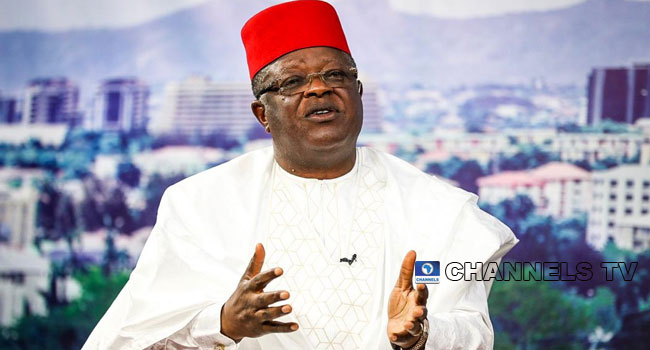The Minister of Works, David Umahi, has stated that President Bola Tinubu is not opposed to the use of taxes from companies to fund road projects.
He said the scheme, which is under the Road Infrastructure Development and Refurbishment Investment Tax Credit (Tax Credit) Scheme, had enabled the country to fix some important roads across the country.
The scheme was used as pilot funding for the completion of the 32-kilometre Apapa-Oshodi-Oworonshoki-Ojota expressway.
The Chairman of the Federal Inland Revenue, Zacch Adedeji, while appearing before the House of Representatives, said the scheme violated the existing law in the country, noting that companies were not supposed to use their tax to directly fund construction.
Adedeji had said, “The mandate of FIRS, lumped with the execution of the Tax Credit Scheme for road construction, is to access, collect tax, and remit it into the federation account, not to appropriate it for any purpose through executive order.
“It is not the duty of FIRS and NNPCL to be paying contractors. The Ministry of Works should be in line with its core mandate, allowing it to award road contracts and pay for them.
But Umahi, after a meeting with the FIRS boss on Friday, said the president approved the continuity of the scheme.
According to a statement signed by his Special Adviser on Media, Uchenna Orji, the minister said the media reports that claimed the Chairman of FIRS announced the scheme would be stopped were not correct.
Umahi further reiterated that the scheme was beneficial and that the implementation framework was encapsulated in Executive Order No. 007 of 2019 of the Federal Government of Nigeria.
“Part of their agreement was that all the NNPC projects on road infrastructure as started, should not be expanded, but should continue to the tune of N2.59trn. It was also agreed at the beginning of this Executive Order, and it was very clear that the N2.59trn was not the total cost of the project.
“Sometimes it’s about 40 per cent funding, sometimes it’s about 50 per cent funding. So, ab initio, the cost of the project up to completion was not N2.59trn. Now, we have scoped the entire project and then put a review on it, and the funding gap is NN2.7trn.
“We agreed that two of us would make a joint memo to Mr. President to suggest that the N2.7trn funding gap be channelled to the National Assembly for approval and then the method upon which we get the money,” he said.
While thanking the Chairman of FIRS for his commitment to the scheme, he noted some of the challenges they discussed such as the problem of methodology for programme implementation and their resolve to adopt a more robust approach to solve the problem.
He also said that part of their resolution was that non-performing contracts shall be terminated.

